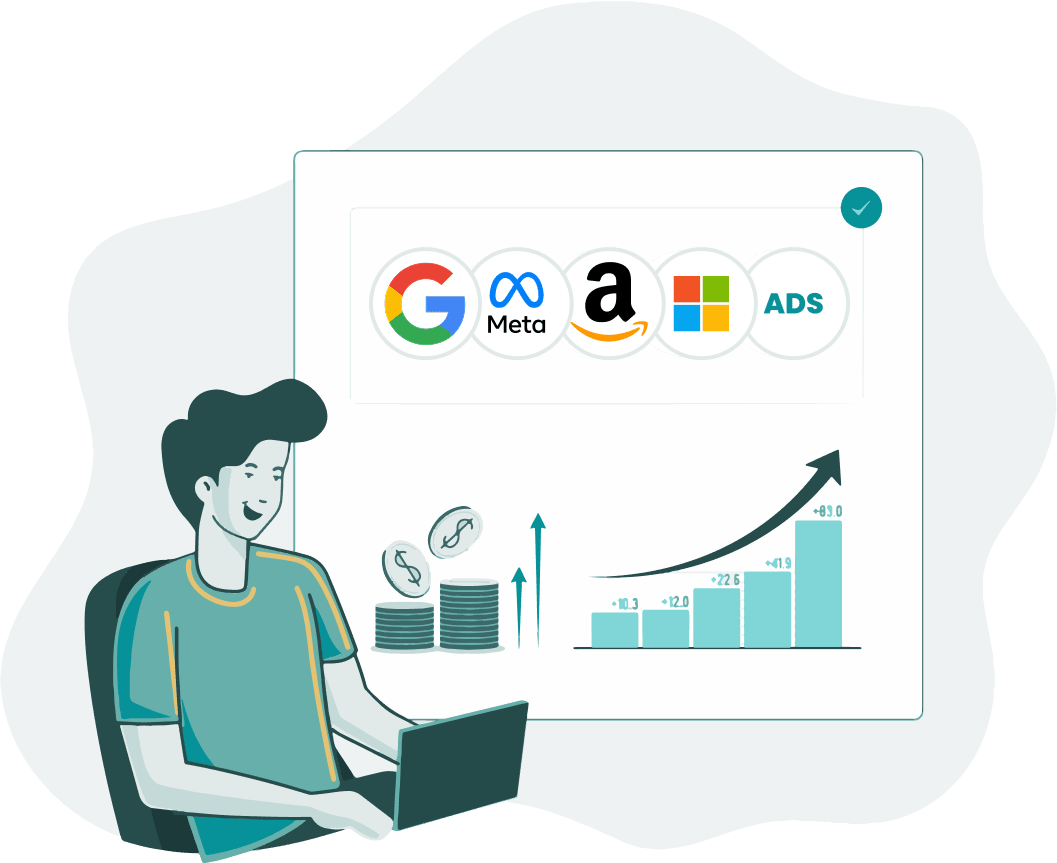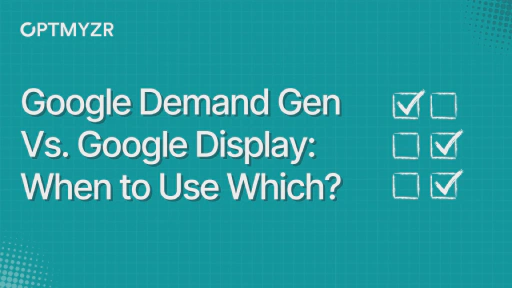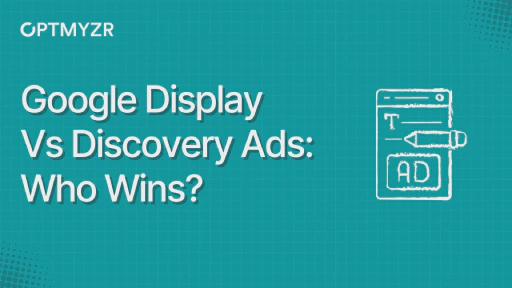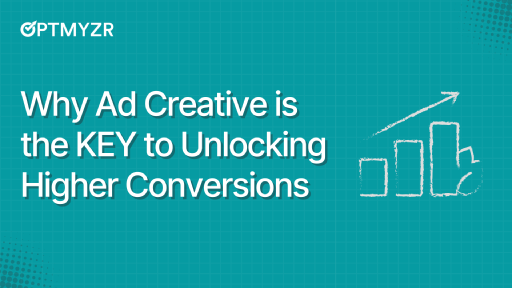When Google launched Performance Max (PMax), it was positioned as the ultimate automated campaign, designed to unify and optimize ads across all of Google’s channels: Search, Shopping, YouTube, Display, and more.
But as many advertisers have found, adding PMax to the mix isn’t always additive. In fact, it might be quietly cannibalizing the performance of your most valuable Search campaigns.
At Optmyzr, we wanted to know just how often this happens and how much impact it has. So we dug into performance data from hundreds of accounts to see where and when PMax overlaps with Search.
The results might surprise you…
Why we ran this study
Advertisers love the control and predictability of Search campaigns. Performance Max, on the other hand, provides less control and is, by design, more opaque.
However, advertisers are encouraged to use both campaign types in tandem, with Google advising that the keywords added to a search campaign should nearly always take precedence over the automated matching done by PMax. They even tell us, “If the user’s query is identical to an exact match keyword in your Search campaign, the Search campaign will be prioritized over Performance Max.”
Scenarios 1-3 in the following table illustrate what that prioritization is supposed to look like.
Prioritization of Ad Serving When Search and Performance Max Compete
Scenario | Keyword | Keyword Match Type | Search Term | Which campaign serves the ad? | Why? |
1 | Flowers | Exact | Flowers | Search campaign is prioritized | The keyword text is the exact same as the search term text |
2 | Flowers | Phrase | Flowers | Search campaign is prioritized | The keyword text is the exact same as the search term text |
3 | Flowers | Broad | Flowers | Search campaign is prioritized | The keyword text is the exact same as the search term text |
4 | Flowers | Phrase | Flowers Near Me | Depends - Campaign with better ad rank wins | The keyword and search term text are different |
5 | Flowers | Broad | Deliver Roses | Depends - Campaign with better ad rank wins | The keyword and search term text are different |
Scenarios 4 and 5 show what happens when a keyword with the same text as the query doesn’t exist in the search campaign, but a broad or phrase match could have triggered the ad. In those scenarios, auction-time signals are used to decide whether to serve an ad from Search or PMax.
But in practice, many advertisers suspect that PMax is crowding out their Search campaigns, even for keywords they specifically target. They suspect that what actually happens is different from what is explained in the table of what is intended to happen.
So we set out to answer key questions like:
- How often does the PMax campaign show an ad for a keyword that exists in a search campaign?
- Are the same search terms showing up in both PMax and Search?
- Does this overlap happen across all match types?
- Which campaign delivers better performance when there is an overlap?
How we ran our search term overlap study
For this study, we reviewed data from February 1 to February 28, 2025, across 503 accounts managed in Optmyzr.
Our analysis had two parts:
Part 1: Exact keyword overlap
We looked for keywords in Search campaigns that also appeared in the PMax search terms report, indicating that PMax triggered ads for keywords explicitly targeted in the advertiser’s Search campaign.
Here’s what that looks like in reports we pulled:

A sample from the data we pulled shows when a search campaign’s keyword text is exactly the same as the search term’s text that triggered a PMax ad.
Note that the text of the keyword is the exact same as the text of the search term that triggered the PMax campaign to show an ad. The keyword match type doesn’t matter; we just check that the text is an exact match.
In our table of scenarios, this would correspond to scenarios 1, 2, or 3.
Part 2: Search term overlap
We checked for search terms that showed up in both PMax and Search campaign reports, and that were not exact matches for an existing search campaign keyword. This indicates that the search campaign contained relevant keywords that could have shown the ad, but sometimes the PMax campaign won the auction and showed the ad for that query.
In our table of scenarios, this would correspond to scenarios 4 or 5.
In both parts, we compared performance for CTR and Conversion Rate. We defined performance differences as “insignificant” if they were under 10% different. We did not include CPC, CPA, and ROAS because Google did not report cost data for PMax search terms at the time of our analysis.
The findings: Keyword overlap is real
When a search campaign contains a keyword whose text matches the search term exactly, Google says the search campaign should be prioritized. What we observed indicates that this prioritization is not what advertisers would expect, and Performance Max frequently cannibalizes the search keyword.
The reason could be that the search campaign was ineligible to show an ad due to targeting or budget constraints. We did not analyze that possibility in this study.
Prevalence of Performance Max cannibalizing search keywords
- Accounts: 91.45% of 503 accounts had keyword overlap between Search and PMax.
- Campaigns: 56.29% of 5,768 Search campaigns showed this overlap.
- Ad Groups: 27.86% of 40,642 ad groups were impacted.
The overlap was identified for all match types, including exact match keywords. So, having a keyword with the exact text of a search term, and making it an exact match keyword, does not guarantee that the overlap won’t happen.
Performance difference when Performance Max cannibalizes search keywords
Ultimately, advertisers care about performance and would likely not complain if Google’s automation did something that led to better financial outcomes for their campaign.
Unfortunately, it’s not possible to measure ROAS differences because PMax campaigns don’t report revenue data at the search term level. So we analyzed two important metrics for which data is available: CTR and conversion rate.
CTR results:
- Search campaign performed better: 28.37%
- Performance Max campaign performed better: 15.98%
- No significant difference: 55.65%
Conversion rate:
- Search outperformed PMax: 18.91%
- PMax outperformed Search: 6.17%
- No significant difference: 74.92%
Takeaway
In most cases, when PMax overlaps with existing search keywords, the performance difference is not significant. However, when the difference exceeded 10%, the search campaign was more often the campaign type with the better performance.
Search term overlap between PMax and search campaigns
This is part 2 of the study. There was also an overlap between Performance Max and Search campaigns when there was no keyword that matched the search query exactly.
This was expected and aligns with Google’s guidance that Ad Rank is the determining factor in these instances. We measured how often this type of overlap exists and how the performance differs.
- Accounts: 97.26% of 511 accounts had search term overlap.
- Search Campaigns: 76.17% showed overlap with PMax.
- PMax Campaigns: 97.40% overlapped with Search campaigns.
Performance difference when Performance Max and search overlap
CTR (424,820 search terms analyzed):
- Search won: 32.37%
- PMax won: 24.21%
- No significant difference: 43.42%
Conversion rate:
- Search better: 7.66%
- PMax better: 4.32%
- No significant difference: 88.03%
Takeaway
Overlap is nearly universal, but performance differences are usually minor. But again, when there is a difference greater than 10%, Search is more likely to be the better-performing campaign type.
Why this matters: Efficiency and control
When PMax runs alongside Search and targets the same queries, it creates internal competition. That means:
- You might pay more for clicks that Search could have delivered more efficiently.
- You lose control over which creative or audience drove results.
- You can’t fine-tune performance as easily because PMax aggregates reporting across channels.
And while PMax is supposed to avoid this overlap, our data shows otherwise.
What advertisers should do
If your Search campaigns are losing impressions to PMax, you’re not alone, and you’re not powerless. The key is to understand that cannibalization isn’t just a function of overlapping keywords. It often happens because your Search campaign becomes ineligible to serve ads in the first place.
That ineligibility can stem from mismatches in location targeting, ad schedules, audience exclusions, or budget constraints. For instance, if your Search campaign doesn’t have enough daily budget to stay active or is limited by a narrower geographic focus, Google won’t even enter it into the auction, leaving PMax to pick up the traffic by default.
To protect your Search performance and regain control:
- Use Search Term Insights (e.g., from Optmyzr) to identify where PMax overlaps with Search. When you find converting terms in PMax that aren’t in your Search campaigns, add them as exact match keywords to shift priority back to Search.
- Align your campaign settings — check your targeting, bids, and budgets — so Search campaigns remain eligible across the full range of impressions you want to capture.
- Turn off auto-apply recommendations that remove “redundant” or “non-serving” keywords. These automated changes often strip your campaigns of the very keywords that protect them from PMax encroachment.
- Add branded misspellings as exact match keywords to Search. Even with brand exclusions enabled, PMax can still trigger ads for fuzzy matches that dilute your brand’s performance data.
Remember, PMax thrives when there’s a gap, either in eligibility, bid competitiveness, or keyword coverage. Your job is to close those gaps. Use PMax where it performs best: as a complement to your Search campaigns, not a replacement for them.
Final thoughts
Performance Max can be powerful, but only when it complements, not competes with, your Search campaigns. As this study shows, Google automation’s promise still needs human oversight to reach its full potential.
Search campaigns give you control. PMax gives you scale. But only when you manage both thoughtfully can you truly maximize performance.









